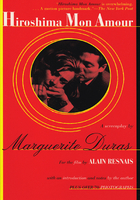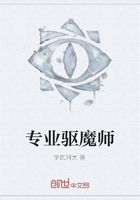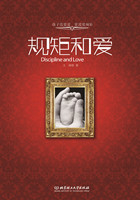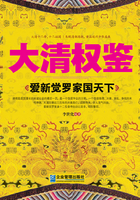DIJON, APRIL 1844
Instead of going directly from Auxerre to Dijon as planned, Flora made two stops, spending one day each in Avallon and Semur. She left copies of The Workers' Union and posters in the bookshops of both towns. And in both, since she had no letters of introduction or referrals, she went to seek out workers in the bars.
On the central square of Avallon near the church, whose gaudily painted saints and virgins reminded her of the Indian chapels of Peru, there were two taverns. She went into L'étoile du Jour at nightfall. The fire in the hearth reddened the faces of the patrons and filled the cramped room with smoke. She was the only woman. Loud talk gave way to whispers and laughter. Through the white clouds of pipe smoke, she could make out winking eyes and leering faces. A hissing noise followed her as she made her way through the sweaty crowd, which parted to let her pass and closed behind her.
She felt perfectly at ease. When the owner of the establishment, a short man with an unctuous manner, came up to ask who she was looking for, she answered him brusquely: no one.
"Why do you ask?" she inquired in turn so that everyone could hear. "Aren't women allowed here?"
"Decent women are," exclaimed a drunken voice from the bar. "Harlots aren't."
He's the poet of the place, thought Florita. "I'm not a prostitute, gentlemen," she explained, without losing her temper, imposing silence. "I'm a friend of the workers. I've come to help you break the chains of exploitation."
Then, by their faces, she saw that they no longer took her for a harlot but a madwoman. Refusing to give up, she kept talking. They listened out of curiosity, as one listens to the song of a strange bird, without paying much attention to what she was saying, more aware of her skirts, her hands, her mouth, her waist, and her breasts than her words. They were tired men with defeated faces, men who wanted only to forget the life they led. After a while, their curiosity satisfied, some started up their conversations again, forgetting her. At the second nightspot of Avallon, La Joie, a small refuge with blackened walls and a fireplace in which a few last embers were dying, the six or seven patrons were too drunk for her to waste time talking to them.
She returned to the inn with the acid taste in her mouth that from time to time plagued her. Why, Florita? Was it because you had squandered time in this town of ignorant peasants? No. It was because your tavern visits had stirred up old memories and now you were smelling the winy exhalations of the dens full of drunks, gamblers, and lowlifes on the place Maubert and the surrounding streets, where you spent your childhood and adolescence—and your four years of marriage, Florita. How frightened you were of the drunks! They swarmed in the neighborhood around the rue du Fouarre, in the doorways of taverns and on corners, sprawled in entryways and alleys, belching, vomiting, snoring, uttering indecencies in their sleep. Her skin crawled as she remembered her walks home in the dark from André Chazal's engraving and lithography workshop, where her mother had managed to get her hired as an apprentice colorist shortly after she turned sixteen.
At least you were able to make use of your talent for drawing. In other circumstances you might been a painter, Andalusa. But she didn't regret having been a wage earner in her youth. At first it seemed wonderful to her, liberating, not to have to spend days shut up in the squalid hovel on the rue du Fouarre, to leave the house very early and work twelve hours at the workshop with the twenty women Master Chazal employed. The place offered a true university education in what it meant to be a working woman in France. Of the master, she was told by the girls in the shop that he had a famous brother, Antoine, a painter of flowers and animals in the Jardin des Plantes. But André Chazal liked to drink, gamble, and spend his time in taverns. When he had had a few drinks, and sometimes when he hadn't, he would take liberties with the girls. And so it was to be. The very day he interviewed you to see if he would accept you as an apprentice, he examined you from head to foot, brazenly resting his vulgar gaze on your breasts and hips.
André Chazal! What a poor devil you were sent by fate, or maybe God, to lose your virginity to, Florita. A tall, somewhat stooped man, with hair like straw, a very broad forehead, bold and roguish eyes, and a protuberant nose that constantly monitored the smells around him. You seduced him at first sight with your big deep eyes and curly black hair, Andalusa. (Was André Chazal the first to call you that?) He was twelve years older than you and his mouth must have watered as he dreamed of the forbidden fruit represented by such a child. Under the pretext of teaching you the trade, he would stand close to you, take your hand, put his arm around your waist. This is how you mix the acids, this is how you change the inks, careful putting your finger there or you'll burn yourself—and instantly he was all over you, rubbing your leg, your arm, your shoulders, your back. Your fellow workers joked, "You've won the boss's heart, Florita." Amandine, your best friend, predicted, "So long as you don't give in, so long as you resist, he'll marry you. Because you're driving him mad, I swear it."
Yes, you were driving him mad—André Chazal, engraver-lithographer, taverngoer, gambler, and drinker—so mad that one day, reeking of cheap wine and with his eyes starting out of his head, he went so far as to paw at your breasts with his big hands. Your slap knocked him backward. Pale-faced, he stared at you in astonishment. Later, instead of dismissing her, as Flora feared, he appeared, contrite, at the hovel on the rue du Fouarre with a little bunch of daisies in his hand, to present his excuses to Madame Tristán. "Madame, my intentions are honorable." This made Madame Aline so happy that she burst out laughing and embraced Flora. It was the only time you ever saw your mother so joyful and affectionate. "How lucky you are," she kept repeating, gazing at you tenderly. "Give thanks to God, my girl."
"Lucky because Monsieur Chazal wants to marry me?"
"Lucky because he's willing to marry you even though you're a bastard. Do you think there are many others who would? Give thanks on your knees, Florita."
The marriage was the beginning of the end of her relationship with her mother; from that moment on, Flora began to love her less. She had known that because her parents' marriage ceremony, performed by the French priest in Bilbao, wasn't valid under civil law, she was an illegitimate child, but only now did she become conscious that as a bastard she bore a guilt as terrible as original sin. That André Chazal, a man of means, practically bourgeois, was willing to give her his name was a blessing, a piece of luck for which she should have been thankful with all her heart. But instead of making you happy, Florita, the whole affair left you with the same disagreeable taste in your mouth that now you were trying to wash away by gargling with mint-water before bed in the inn at Avallon.
If what you felt for Monsieur Chazal was love, then love was a lie. It was nothing like love in novels, that delicate sentiment, that poetic exaltation, those burning desires. When, in his office at the shop after the other workers had left, André Chazal, not yet your husband and still your master, made love to you on the chaise longue with squeaky springs, it didn't seem romantic or beautiful or poignant. Rather, it was painful and repellant. The heavy body stinking of sweat, the viscous tongue tasting of tobacco and alcohol, the feeling that she was being mauled from thighs to belly, made her ill. And still, idiot Flora, foolish Andalusa, after that disgusting rape—which is what it was, wasn't it?—you wrote André Chazal the letter that the wretch would make public seventeen years later, in a Paris courtroom. A stupid, lying note, full of everything a girl is supposed to tell her lover after surrendering her virginity. And riddled with spelling and grammar mistakes! How ashamed you must have felt hearing it read, hearing the titters of the judges, the lawyers, the spectators. Why did you write it if you rose sick with disgust from that chaise longue? Because it was what the heroines of novels did when they were deflowered.
They were married a month later, on February 3, 1821, at the municipal hall of the eleventh arrondissement, and thereafter lived in a little apartment on the rue des Fossés in Saint-Germain-des-Prés. When, huddled in her bed at the inn in Avallon, she realized that her eyes were damp, Flora made an effort to put those unpleasant memories out of her head. The important thing was that, instead of destroying you, your setbacks and disappointments had made you stronger, Andalusa.
In Sêmur things went better than in Avallon. A few steps away from the famous towers of the Duke of Burgundy, for which she felt not the slightest admiration, there was a tavern where during the day people came to eat. A dozen farm laborers were celebrating someone's birthday, and some barrel makers were there too. It wasn't hard for her to strike up a conversation with the two groups. She explained why she was touring France, and they looked at her with respect and apprehension, although, Flora thought, without understanding much of what she was telling them.
"But we are farm laborers, not workers," said one of them, by way of excuse.
"Peasants are workers too," she explained. "And craftsmen and servants. Anyone who isn't a master is a worker; all those who are exploited by the bourgeoisie. And because you are the largest group and suffer the most, you will save humanity."
They exchanged glances, taken aback by this declaration. At last they worked up the courage to ask her questions. Two of them promised to buy The Workers' Union and join the organization when it was established. So as not to hurt their feelings, she had to have a few sips of wine before she left.
She arrived in Dijon at dawn on April 18, 1844, with strong pains in her uterus and bladder. The pain had begun en route, perhaps because of the jolting of the stagecoach and the irritation produced in her bowels by the dust she had swallowed. She spent her whole week in Dijon bothered by this discomfort in her lower abdomen, which made her horribly thirsty—she took frequent swallows of sugared water—but in good spirits because she was busy every minute in this clean, pretty, friendly city of thirty thousand. Dijon's three daily papers had announced her visit, and she had many meetings planned in advance thanks to her Saint-Simonian and Fourierist friends in Paris.
She was excited to meet Mademoiselle Antoinette Quarré, the Dijon dressmaker and poet whom Lamartine had called "a model for women" in one of his poems, praising her artistic talent, her ability to overcome obstacles, and her passion for justice. But after exchanging a few words with her at the offices of the Journal de la C?te d'Or, Flora realized that Mademoiselle Quarré was vain and stupid. Hunched and twisted front and back, she was also enormously fat and practically a dwarf. She had been born into a very humble family, and now her literary triumphs made her feel she was bourgeois.
"I don't think I can help you, madame," she said rudely, waving her little hand, after listening impatiently. "From what you've just said, your message is intended for the workers. I don't mix with the townspeople."
Of course not, you'd scare them to death, thought Madame-la-Colère. She made her farewells briskly, neglecting to give Mademoiselle Quarré the copy of The Workers' Union that she had intended as a gift.
The Saint-Simonians were well established in Dijon. They had their own meetinghouse. Alerted by Prosper Enfantin, they received her in a solemn session on the afternoon of her arrival. From the entrance to the building, next door to the museum, Flora saw them and took their measure in just a few seconds. These were the usual sort of bourgeois socialists and impractical dreamers—amiable and ceremonious Saint-Simonians who worshiped the elite and were convinced that by controlling the budget they would revolutionize society. Just like the Saint-Simonians in Paris, Bordeaux, or anywhere else, they were professionals and government officials, property owners and men of independent means, well educated and well dressed, believers in science and progress, critical of the bourgeoisie but bourgeois themselves and distrustful of working men.
Here too, as at the meetings in Paris, they had put an empty chair on the stage, symbolizing their wait for the arrival of the Mother, the Woman-Messiah, the superior female who would join in sacred intercourse with the Father (Prosper Enfantin, since the founder, Claude-Henri de Rouvroy, Comte de Saint-Simon, had died in 1825) to form the Supreme Couple. Together, Mother and Father would precipitate the transformation of humanity, which would lead to the emancipation of women and workers from their current servitude, and to the dawning of an era of justice. What were you waiting for to go and sit in that empty chair, Florita, and surprise them by announcing, as dramatically as the actress Rachel, that their wait was over, that the Woman-Messiah was before their eyes? She had been tempted to do it in Paris. But she was restrained by the growing differences she had with the Saint-Simonians over their idolatry of a select minority, which they wanted to bring to power. Also, if they accepted her as Mother, she would have to mate with Father Enfantin. You weren't willing to do that, even if it was the price of freeing humanity from its chains, though Prosper Enfantin was said to be a handsome man and many women sighed over him.
Copulating, not making love but copulating, like pigs or horses: that was what men did with women. They lunged at them, spread their legs, stuck them with their spurting members, made them pregnant, and left them with their wombs damaged forever, as André Chazal did to you. You'd had those pains down below since your ill-fated marriage. "Making love," that tender, delicate ceremony in which the heart, feelings, desires, and instincts all played a role, and in which the two lovers both took pleasure, was an invention of poets and novelists, a fantasy not borne out in pedestrian reality. Not between women and men, anyway. You, at least, hadn't made love even once in those frightful four years with your husband in the little apartment on the rue des Fossés. You had copulated or, more accurately, had been made the object of copulation each night by that lascivious beast who, stinking of alcohol, crushed you with his weight and fondled you and slobbered all over you until he collapsed beside you like a sated animal. How you cried with disgust and shame, Florita, after those nocturnal violations to which you were subjected by the tyrant who robbed you of your freedom. Without ever bothering to find out whether you wanted to make love, without wondering at all whether you enjoyed his attentions—should those repugnant gasps, those tonguings and bites, be called that?—or whether he was hurting you, repelling you, making you sad or despondent. If it hadn't been for sweet Olympia, what a poor idea you'd have of physical love, Andalusa.
But even worse than being the object of copulation was being made pregnant by those nighttime attacks. Yes, worse. To feel that you were bloating, becoming deformed, that your body and your soul were ravaged; to feel thirst, dizziness, heaviness, the least movement requiring two or three times as much effort as usual. Were these the blessings of motherhood? Was this what women yearned for, the satisfaction of their deepest dreams? This? Swelling up, giving birth, becoming a slave to one's children as if it weren't enough to be a slave to one's husband?
The apartment on the rue des Fossés was small, though lighter and cleaner than the one on the rue du Fouarre. But Flora hated it even more, feeling herself a prisoner, a being stripped of what from then on she would learn to value more than anything else in the world: freedom. Your four years of matrimonial slavery opened your eyes to what was true and what was false in the relationship between men and women, to what you wanted and didn't want out of life. What you were—a receptacle for giving pleasure and children to André Chazal—you certainly didn't want to be.
To escape her husband's arms after the birth of her first son, Alexandre, in 1822, she began to invent excuses: sore throats, fevers, migraines, nausea, vapors, overpowering sleepiness. And when that wasn't enough, she would refuse to perform her conjugal duties, even when her lord and master flew into rages and cursed her. The first time he tried to strike you, you jumped out of bed, grabbing a pair of scissors from the bureau.
"If you touch me, I'll kill you. Now, tomorrow, the next day. I'll wait until you're asleep, or looking the other way. And I'll kill you. Neither you nor anyone else will ever lay a hand on me. Ever!"
Seeing her so resolute, so beside herself, André Chazal was frightened. Well, Florita, in the end you didn't kill him. In fact, the poor idiot practically killed you. And after continuing to force himself on you, making you pregnant, and causing you to have a second child (Ernest-Camille, in June of 1824), he made you pregnant yet again. But by the time Aline was born you had shed your chains.
The Saint-Simonians of Dijon listened to her intently. Afterward, they asked her questions, and one of them insinuated that her idea for the Workers' Palace owed much to the model conceived by the disciples of Saint-Simon. They weren't wrong, Florita. You had been a diligent student of Saint-Simon's teachings, and there was a time when his obsession with water—he believed that the currents of human knowledge, money, respect, and power should flow freely, like rivers and waterfalls, in order for progress to be achieved—had fascinated you, as had his personality, and the grand gestures that enlivened his biography: for example, he gave up being a count because, he said, "I consider it a title very inferior to that of citizen." But the Saint-Simonians had only gone halfway, since although they defended women, they didn't give workers fair treatment. They were polite and pleasant people, certainly. All those present promised to join the Workers' Union and read her book, although it was obvious that she hadn't converted them. They were skeptical of the idea that only the union of all workers would bring about emancipation and justice for women. They didn't believe in reforms undertaken from below, alongside the rabble. They viewed the workers from a lofty height, with the instinctive wariness of property owners, officials, and the independently wealthy. They were so naive they believed that a handful of bankers and industrialists could remedy all of society's ills by drawing up a budget with scientific expertise. But ultimately, at least, the liberation of women from all kinds of servitude and the reinstitution of the right to divorce figured most prominently in their doctrine. If only for that, you were grateful to them.
More interesting than the meeting with the Saint-Simonians were her sessions with the carpenters, shoemakers, and weavers of Dijon. She met with each group separately, since the mutual aid societies of the Compagnonnage were very jealous of their autonomy and reluctant to mix with workers in other trades, a prejudice that Flora tried to cure them of without much success. The best meeting was the one with the weavers, a dozen men crammed into a workshop on the outskirts of the city. She spent several hours with them, from late afternoon well into the night. Destitute, dressed in simple smocks of coarse woolen cloth and worn shoes—or no shoes at all—they listened to her with interest, often nodding their agreement, standing stock-still. Flora saw their tired faces light up when she said that once the Workers' Union had spread throughout France and then Europe it would have so much power that governments and parliaments would make the right to work into law, a law that would protect them from unemployment forever.
"But you want to give women this right, too," one of them reproached her when she turned the floor over to them for questions.
"Don't women eat? Don't they wear clothes? Don't they need to work to live too?" Flora rapped out as if giving a recitation.
It wasn't easy to convince them. They were afraid that if the right to work was extended to women, unemployment would spread, since there would never be enough work for so many people. Neither could she persuade them that children under ten should be prohibited from working in factories and workshops so that they could go to school to learn to read and write. This frightened and angered them: they said that under the pretext of educating children the meager income of families would be reduced. Flora understood their fears and mastered her impatience. They worked fifteen hours or more out of every twenty-four, seven days a week, and they were clearly malnourished, haggard, sickly, aged by their animal existence. What more could you ask of them, Florita? She left the workshop with the certainty that the exchange would bear fruit. And despite her fatigue, the next morning she did her duty and visited a few tourist spots.
The famous Black Virgin of Dijon, Our Lady of Good Hope, seemed to her an ugly toad, a sculpture unworthy of occupying its privileged spot on the cathedral's high altar. She said as much to the two girls from the Guild of the Virgin who were adorning the icon with bracelets and diadems, and tunics and veils of satin, gauze, and organdy.
"To worship the Virgin in the form of that totem is superstition. You remind me of the idolaters I saw in the churches of Peru. Do your priests permit it? If I lived in Dijon, I'd put an end to this display of pagan obscurantism in three months."
The girls crossed themselves. One of them stammered that the Duke of Burgundy had brought the figure back from his travels in the East. For hundreds of years the Black Virgin had been the region's most popular object of worship, and had granted the most miracles.
Flora had to leave in a hurry—regretfully, since she would have liked to continue her conversation with the two pious young women—so as not to be late for her appointment with four grand ladies, the organizers of charity drives and sponsors of homes for the elderly. The women were intrigued by their visitor. They scrutinized her thoroughly, curious to know what she was like, this outlandish Parisian who wrote books, this secular saint who declared without blushing her intent to redeem humanity. They had set a little table for her with tea, cold drinks, and pastries, which Flora didn't touch.
"I've come to ask for your help with a profoundly Christian undertaking, ladies."
"But what do you think we do, madame?" said the eldest, a little old woman with blue eyes and an energetic manner. "We devote our lives to charitable causes."
"No, you don't," Flora corrected her. "You give alms, which is very different."
Taking advantage of their surprise, she tried to make them understand. Alms served only to gird those who gave them with good conscience and righteousness; they didn't help the poor escape poverty. Instead of giving alms, they should use their money and influence to support the Workers' Union, to finance its newspaper, to open offices for it. The Workers' Union would bring justice to suffering humanity. One of the ladies, dumbfounded, fanned herself furiously, muttering that no one could give her lessons in charity—she, who neglected her family to dedicate four afternoons a week to charitable works—and certainly not some arrogant woman wearing muddy shoes full of holes. That she should permit herself to scorn them! Madame, you're mistaken: Flora believed in her good intentions and wished only to channel her efforts more efficiently. The tension eased, but she received no pledge of support. You left them, amused: those four ignoramuses would never forget you. You had opened their eyes a little, planted a seed of guilt.
Now you felt confident, Andalusa, capable of confronting all the bourgeois in the world with your excellent ideas. Because you had a very clear notion of good and bad, of victimizers and victims, and what the cure was for society's ills. How you had changed since that terrible moment when you discovered that André Chazal had impregnated you for the third time and you secretly decided to leave your husband, without warning even your mother. "Never again." And you had done it.
She was twenty-two years old, with two small children in tow and another quickening in her belly. She had no money, and no friends or family to support her. Despite this, she decided to commit what amounted to suicide for any woman who cared about security and her good name. But nothing mattered to you anymore if it meant continuing to live the life of a slave. All you wanted was to escape the barred cage called matrimony. Did you know what lay in store for you? No, certainly not. She never imagined the dramatic consequence of her flight, that bullet lodged in her chest, the cold metal that she felt suddenly in coughing fits, when things went wrong, and at moments of discouragement. You had no regrets. You would do it again, exactly the same way, because even now, twenty years later, you shuddered when you imagined what your life would be like if you were still Madame André Chazal.
A sad state of affairs made her departure easier: the chronic feebleness and constant illnesses of her oldest son, Alexandre, who would die in 1830 at the age of eight. The doctor insisted that it was necessary to take him to the country to breathe clean air, far from the miasmas of Paris. André Chazal gave his consent. He rented a little room near Versailles, in the house of the wet nurse who cared for Ernest-Camille, and he allowed Flora to go and live there until she gave birth. How free she felt the day André Chazal said goodbye to her at the stagecoach station. Aline was born two months later, on October 16, 1825, in the country, into the hands of a midwife who made Flora push and bellow for nearly three hours. And so your marriage ended. Many years would pass before you'd see your husband again.
After Flora insisted three times, and sent him a signed copy of The Workers' Union, His Excellency the Bishop of Dijon deigned to see her. He was a distinguished-looking and well-spoken old man, and Flora spent a most agreeable time sparring with him. He received her in the episcopal palace, with much kindness. He had read the little book, and before Flora could open her mouth, he showered her with compliments. My child! Her intentions were pure, noble. There was in her an obvious understanding of human suffering, and the fervent will to alleviate it. But … but … There was always some but in this imperfect life. In Flora's case, her not being Catholic. Was it really possible to undertake a great moral work, of spiritual import, outside of Catholicism? Her noble intentions would be distorted, and instead of producing the desired results, her venture would have harmful effects. Therefore—it deeply pained the bishop to tell her this—he wouldn't help her. In fact, it was his duty to warn her. If the Workers' Union was formed—and with Flora's energy and willpower it seemed likely that it would be—he would fight it. A non-Catholic organization of that magnitude could mean disaster for society. They argued for a long time. Flora soon realized that her reasoning would never sway Monsignor Fran?ois-Victor Rivet. But she was charmed by the bishop's refinement; he spoke to her knowledgeably and discerningly of art, literature, music, and history. Whenever she heard someone like him talk, she couldn't help feeling a twinge of regret for everything she didn't know, for everything she hadn't read and never would read, since it was too late now to fill the gaps in her education. That was why George Sand looked down on you, Florita, and why you always felt a paralyzing inferiority in the company of that great lady of French letters. "You're worth more than she is, silly," Olympia would say to encourage her.
To be uneducated as well as poor was to be doubly poor, Florita. She said this to herself many times in the year she escaped André Chazal's yoke—1825—when, with her oldest son ill, the second living with a wet nurse in the country, and Aline a newborn, she confronted a circumstance that she hadn't foreseen, obsessed as she was with the sole idea of freeing herself from the burden of family. The children had to be fed. How could it be done, when you hadn't a cent? She went to see her mother, who was then living in a less squalid neighborhood, on the rue Neuve-de-Seine. Madame Tristán couldn't understand why you wouldn't go home to your husband, the father of your children. Flora! Flora! What madness was this? Abandon André Chazal? The poor man was justified in complaining that he received no word from you. He thought his little wife was in the country, caring for the children. In the last few weeks, André had been visited by financial disaster: creditors were besieging him, he had had to give up the apartment on the rue des Fossés, and his workshop had been seized by the courts. And precisely now, when your husband needed you most, you were abandoning him? Your mother's eyes filled with tears, and her mouth trembled.
"I've already done it," said Flora. "I'll never go back to him. I'll never give up my freedom again."
"A woman who abandons her home sinks lower than a prostitute," her mother, horrified, said in reproach. "The law forbids it; it's a crime. If André denounces you, the police will come looking for you and you'll go to jail like a common criminal. You can't do such a thing!"
You did it, Florita, despite the risks. True, the world turned hostile, and life became exceedingly difficult. To begin with, you had to convince the wet nurse in Arpajon to take in all three children while you looked for a job to pay her for her services and support your children. And what kind of job could you find, you who were incapable of writing a sentence correctly?
To keep herself out of André Chazal's clutches, she avoided the printing workshops, where she might have been hired. And she left Paris, hiding herself in the provinces, first in Rouen. She had to begin at the very bottom, selling needles, spools of thread, and embroidery supplies in a little shop, which she mopped, swept, and dusted after it closed. Her humiliatingly tiny wages were all sent to the wet nurse in Arpajon. Then she served as the nursemaid of the twin children of a colonel's wife who lived in the countryside near Versailles while her husband was at war or commanding a barracks. It wasn't a badly paid job—she spent nothing and had a decent room—and she would have stayed longer if her temper had permitted her to endure the twins, filthy beasts who, when they weren't deafening her with their screams, pissed and vomited on clothes she had just changed them into because they had soiled the ones they were wearing before. The colonel's wife threw her out the day she discovered Madame-la-Colère, beside herself at the twins' screaming, pinching them to see if that would make them stop.
Although ever since she was young, Flora had tried to compensate for the deficiencies of her education with all the means at her disposal, when she met someone like the Bishop of Dijon, who knew so much and spoke such elegant French, she was always oppressed by the feeling that she was uncultured and ignorant. And yet she wasn't discouraged when she left the episcopal palace. Instead, she was heartened. After hearing him, she couldn't stop thinking how pleasant life would be when, thanks to the great peaceful revolution she was setting in motion, the Workers' Palaces would give every child as careful an education as Monsignor Rivet himself must have received.
On the day before she left Dijon, after a meeting with a group of Fourierists, Flora traveled outside the city to visit Gabriel Gabety, an elderly philanthropist. He had been an active revolutionary—a Jacobin—during the Great Revolution, and now he was a rich widower who wrote books on the philosophy of justice and law. It was said that he sympathized with the ideas of Charles Fourier. But again, Flora was gravely disappointed. She obtained no promise of help for the Workers' Union, a project that the ex-follower of Robespierre dismissed as a "mad fantasy." And she had to endure a nearly hour-long monologue from the chilly octogenarian—besides a woolen robe and scarf, he wore a sleeping cap—about his researches into the relics of Roman life in the region. Not satisfied with law, ethics, philosophy, and politics, he was an amateur archaeologist in his spare time. While the old man droned on, Flora followed the comings and goings of Monsieur Gabety's little maid. Young, nimble, cheerful, she wasn't still for a second: she pushed her mop over the corridor's red tiles, dusted the china in the dining room with a feather duster, and brought in the lemonade that the humanist had ordered in a brief parenthesis to his dull lecture. That was you, Florita, years ago. Like her, you spent three years mopping, cleaning, sweeping, washing, ironing, and serving day and night. Until you found a better job. Maid, servant, hired help of the family whose fault it was that you contracted, as one contracts yellow fever or cholera, your boundless hatred for England. Nevertheless, if you hadn't spent those years in the service of the Spence family, you wouldn't be so certain now about what had to be done to make a worthy and human dwelling place of this vale of tears.
Upon returning to the inn after her useless trip to Gabriel Gabety's country house, Flora had a pleasant surprise. One of the maids, a timid adolescent, came knocking at the door of her room. She had a franc in her hand, and she stammered, "Would this be enough to buy your book, miss?" She had been told about The Workers' Union, and she wanted to read it, because she knew how to read, and she liked to do it in her free time.
Flora embraced her, signed a copy for her, and refused to take her money.














